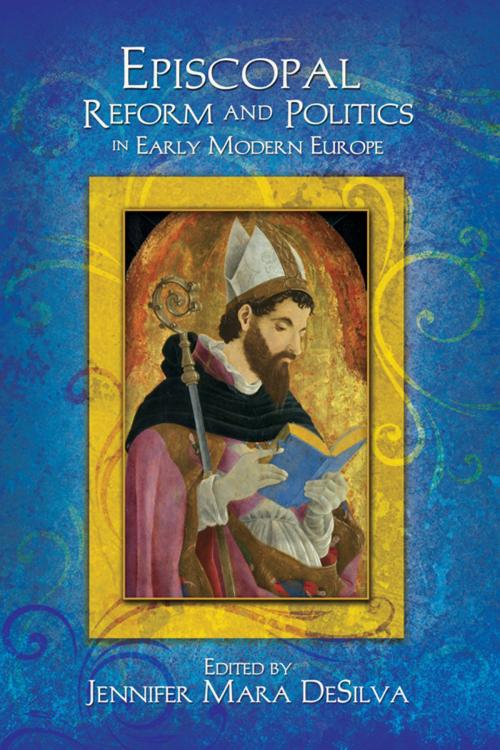Episcopal Reform and Politics in Early Modern Europe
Nonfiction, Religion & Spirituality, Reference, History| Author: | ISBN: | 9781612480749 | |
| Publisher: | Truman State University Press | Publication: | September 1, 2012 |
| Imprint: | Language: | English |
| Author: | |
| ISBN: | 9781612480749 |
| Publisher: | Truman State University Press |
| Publication: | September 1, 2012 |
| Imprint: | |
| Language: | English |
In the tumultuous period of the sixteenth and seventeenth centuries when ecclesiastical reform spread across Europe, the traditional role of the bishop as a public exemplar of piety, morality, and communal administration came under attack. In communities where there was tension between religious groups or between spiritual and secular governing bodies, the bishop became a lightening rod for struggles over hierarchical authority and institutional autonomy. These struggles were intensified by the ongoing negotiation of the episcopal role and by increased criticism of the cleric, especially during periods of religious war and in areas that embraced reformed churches. This volume contextualizes the diversity of episcopal experience across early modern Europe, while showing the similarity of goals and challenges among various confessional, social, and geographical communities. Until now there have been few studies that examine the spectrum of responses to contemporary challenges, the high expectations, and the continuing pressure bishops faced in their public role as living examples of Christian ideals.
In the tumultuous period of the sixteenth and seventeenth centuries when ecclesiastical reform spread across Europe, the traditional role of the bishop as a public exemplar of piety, morality, and communal administration came under attack. In communities where there was tension between religious groups or between spiritual and secular governing bodies, the bishop became a lightening rod for struggles over hierarchical authority and institutional autonomy. These struggles were intensified by the ongoing negotiation of the episcopal role and by increased criticism of the cleric, especially during periods of religious war and in areas that embraced reformed churches. This volume contextualizes the diversity of episcopal experience across early modern Europe, while showing the similarity of goals and challenges among various confessional, social, and geographical communities. Until now there have been few studies that examine the spectrum of responses to contemporary challenges, the high expectations, and the continuing pressure bishops faced in their public role as living examples of Christian ideals.















